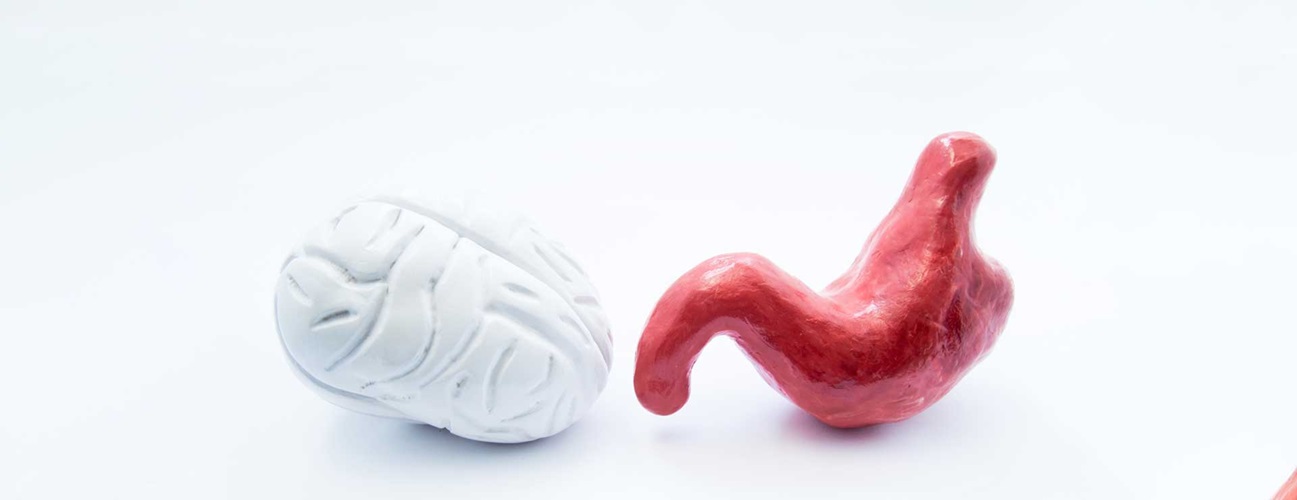Contents
The intricate interplay between the mind and body is a topic of growing interest in healthcare. One fascinating thing Researchers have recognized as an often underestimated connection lies in mental health and digestion. This article will be a complex web of interactions between the brain and the digestive system, exploring how emotions, stress, and mental well-being can significantly impact digestive health.Stomach problems are one of the most commonplace signs and symptoms of pressure and tension. Researchers have recognized a connection between the intestine and the mind. Like the brain, your gut is composed of nerves called the enteric worried gadget, or ENS, additionally known as the “2nd brain”. The enteric apprehensive gadget has the equal type of neurons and neurotransmitters located for your primary frightened gadget.
The Brain-Gut Axis:
A Bidirectional Communication System:
The brain and the gastrointestinal (GI) system are connected through a bidirectional communication network called the brain-gut axis. This complex interplay involves the two systems’ neural, hormonal, and immunological signaling.When frightened or anxious, your frame releases some hormones and chemical compounds that input the digestive device. This can affect the microorganisms that live along your intestine, supporting within the digestion system even as lowering antibody manufacturing. The ensuing chemical imbalance
Enteric Nervous System (ENS):
Often referred to as the “second brain,” the enteric nervous system, a network of neurons in the GI tract, operates independently but communicates with the central nervous system (CNS). This intricate system regulates digestion, absorption, and gut motility.Psychiatric comorbidity is expanded in sufferers with gastrointestinal disorders, suggesting shared or interacting sickness mechanisms, which might be attributed to the communique between the gastrointestinal machine and the brain via the gut-mind axis.
The Impact of Stress on Digestive Health:
When the brain perceives stress, it triggers the release of stress hormones, such as cortisol, as part of the fight-or-flight response. While this response is adaptive in the short term, chronic stress can negatively impact the GI system. Prolonged stress can lead to alterations in GI motility, blood flow, and the secretion of digestive enzymes. This can result in symptoms such as indigestion, bloating, and changes in bowel habits. Stress may also impact the composition and balance of the gut microbiota. The microbiota, consisting of trillions of microorganisms, plays a crucial role in digestion, nutrient absorption, and overall gut health.
Emotional Factors and Digestive Disorders:
Functional GI Disorders:
Conditions such as irritable bowel syndrome (IBS) and functional dyspepsia are characterized by disturbances in gut function without identifiable structural abnormalities. Emotional factors, including stress and anxiety, are often linked to the onset and exacerbation of these disorders. Within this, one-of-a-kind states of the intestinal microbiome are conceived to play a vital function. Moreover, research have implicated the role of the vagus nerve, that is the mediator between the gut and the brain
Inflammatory Bowel Disease (IBD):
Inflammatory bowel diseases, such as Crohn’s disease and ulcerative colitis, involve chronic inflammation of the GI tract. While the exact cause is complex, psychological factors, including chronic stress, can contribute to symptom severity and disease flare-ups.Psychiatric comorbidity is multiplied in patients with gastrointestinal problems, suggesting shared or interacting ailment mechanisms, which can be attributed to the communique between the gastrointestinal machine and the brain by way of the intestine-brain axis.
Mind-Body Techniques for Digestive Health:
Mindful Eating:
Practicing mindful eating involves paying attention to the sensory experience of eating and being present during meals. This approach can enhance digestion, reduce overeating, and promote a positive relationship with food.Within this, one of a kind states of the intestinal microbiome are thought to play an vital position. Moreover, research has implicated the position of the vagus nerve, which is the mediator between the gut and the mind.
Relaxation Techniques:
Incorporating relaxation techniques such as deep breathing, meditation, and progressive muscle relaxation can help mitigate the impact of stress on the digestive system.Homeostatic conditions, coordinated physiological responses exemplified with the aid of an immune or strain response are important for survival. However, a dysfunctional response can bring about unfavorable results, ensuing in numerous vital fearful gadget disorders.
Cognitive Behavioral Therapy (CBT):
CBT, a form of psychotherapy, has shown effectiveness in managing functional GI disorders by addressing maladaptive thought patterns and behaviors related to digestive symptoms.Meta-analysis pronounced that sufferers who suffered from both diarrhea-predominant and constipation-essential irritable bowel syndrome confirmed better anxiety degrees. Still, sufferers with diarrhea-primary irritable bowel syndrome simplest appeared to have expanded ranges of melancholy
Regular Physical Activity:
Engaging in regular physical activity not only promotes overall well-being but also supports digestive health. Exercise can help regulate gut motility and reduce stress, benefiting the entire GI system.Eating fiber improves reminiscence and general temper. It also decreases irritation and oxidative strain by means of assisting microbiota. Foods excessive in fiber encompass beans and legumes, oats, nuts, dark chocolate, culmination, and veggies.
Probiotics, Prebiotics, and Gut-Brain Health:
Probiotics:
Probiotics are beneficial bacteria that can positively influence gut health. Emerging research suggests that certain strains of probiotics have a positive impact on mood and stress response.
Prebiotics:
Prebiotics are non-digestible fibers that promote the growth of beneficial bacteria in the gut. Consuming prebiotic-rich foods may contribute to a healthy gut microbiota and influence mental well-being. Collaboration between Gastroenterologists and Mental Health Professionals
For individuals experiencing chronic digestive issues with an emotional component, a collaborative approach between gastroenterologists and mental health professionals can be beneficial. This approach addresses both the physiological and psychological aspects of digestive health. Recognizing the unique interplay between mental health and digestion, healthcare professionals can develop individualized treatment plans incorporating dietary, lifestyle, and psychological interventions.
Conclusion:
The intricate connection between mental health and digestion underscores the holistic nature of well-being. Understanding the impact of stress, emotions, and psychological factors on the digestive system opens new avenues for comprehensive approaches to health. By nurturing both mental and digestive health through mindful practices, lifestyle adjustments, and, when necessary, professional support, individuals can cultivate a harmonious balance between the mind and the gut, contributing to overall wellness.

